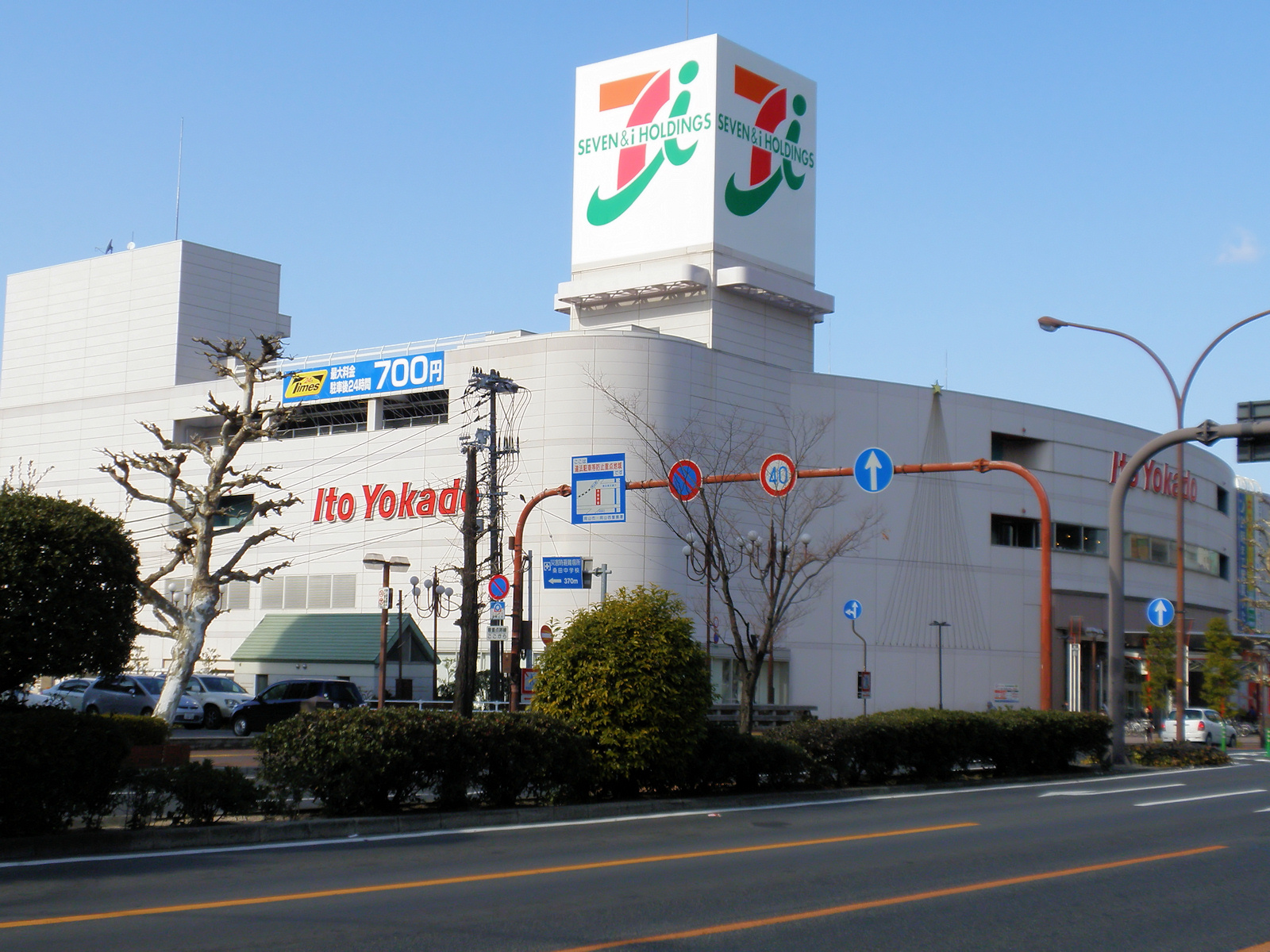Ito-Yokado on:
[Wikipedia]
[Google]
[Amazon]
 is a Japanese general merchandise and
is a Japanese general merchandise and
 is a Japanese general merchandise and
is a Japanese general merchandise and department store
A department store is a retail establishment offering a wide range of consumer goods in different areas of the store, each area ("department") specializing in a product category. In modern major cities, the department store made a dramatic appe ...
, originally founded in 1920. In 2005, it was reorganized, as part of a corporate restructuring, as a subsidiary of the Seven & I Holdings Co.
As of March 2013, there are 178 Ito-Yokado stores operating in Japan. Since entering the Chinese market in 1997, opening their first store in the Chunxilu shopping district of Chengdu
Chengdu (, ; simplified Chinese: 成都; pinyin: ''Chéngdū''; Sichuanese pronunciation: , Standard Chinese pronunciation: ), alternatively romanized as Chengtu, is a sub-provincial city which serves as the capital of the Chinese provin ...
, the company has been operating eight stores in Beijing
}
Beijing ( ; ; ), Chinese postal romanization, alternatively romanized as Peking ( ), is the Capital city, capital of the China, People's Republic of China. It is the center of power and development of the country. Beijing is the world's Li ...
and six in Chengdu. The company formed a joint venture with Wangfujing Department Store
Wangfujing () is a Chinese department store based in Beijing. Through a joint venture with Japanese department store Ito-Yokado
is a Japanese general merchandise and department store, originally founded in 1920. In 2005, it was reorganized ...
and China Huafu Trade & Development Group Corp. to open one of five stores in Beijing
}
Beijing ( ; ; ), Chinese postal romanization, alternatively romanized as Peking ( ), is the Capital city, capital of the China, People's Republic of China. It is the center of power and development of the country. Beijing is the world's Li ...
. As of January 2013, there are fourteen Ito-Yokado stores in China.
Musical Codes
Inside Ito-Yokado, the staff working at the register can play instrumentals of famous musical pieces, which is a code to workers in the store for specific things to do. These are: * ''Help!
''Help!'' is the fifth studio album by the English rock band the Beatles and the soundtrack to their film of the same name. It was released on 6 August 1965. Seven of the fourteen songs, including the singles " Help!" and " Ticket to Ride", ...
'' - (The Beatles
The Beatles were an English Rock music, rock band, formed in Liverpool in 1960, that comprised John Lennon, Paul McCartney, George Harrison and Ringo Starr. They are regarded as the Cultural impact of the Beatles, most influential band of al ...
) - A call for additional staff to man the tills during periods of high customer traffic.
* ''Daydream Believer
"Daydream Believer" is a song composed by American songwriter John Stewart shortly before he left the Kingston Trio. It was originally recorded by the Monkees, with Davy Jones singing the lead. The single reached No. 1 on the U.S. ''Billboard ...
'' (The Monkees
The Monkees were an American rock and pop band, formed in Los Angeles in 1966, whose lineup consisted of the American actor/musicians Micky Dolenz, Michael Nesmith and Peter Tork alongside English actor/singer Davy Jones. The group was con ...
) - Played during ordinary operation.
* '' Rhythm of the Rain'' ( The Cascades) - To inform customers of heavy rain outside the building.
* ''Carmen
''Carmen'' () is an opera in four acts by the French composer Georges Bizet. The libretto was written by Henri Meilhac and Ludovic Halévy, based on the novella of the same title by Prosper Mérimée. The opera was first performed by the ...
'' - Robbery and other criminal activities in the premises.
* '' Symphony No. 5, 1st. Movement (Allegro con brio)'' (Beethoven
Ludwig van Beethoven (baptised 17 December 177026 March 1827) was a German composer and pianist. Beethoven remains one of the most admired composers in the history of Western music; his works rank amongst the most performed of the classic ...
) - Bomb threat
A bomb threat or bomb scare is a threat, usually verbal or written, to detonate an explosive or incendiary device to cause property damage, death, injuries, and/or incite fear, whether or not such a device actually exists.
History
Bomb threat ...
.
References
External links
* Japanese companies established in 1920 Retail companies established in 1920 2005 mergers and acquisitions Supermarkets of Japan Retail companies based in Tokyo Seven & I Holdings Japanese brands {{retail-company-stub